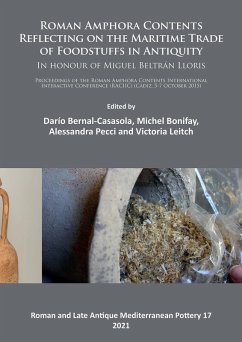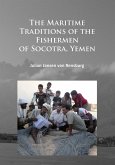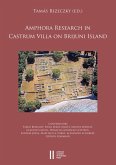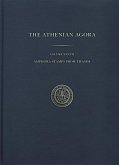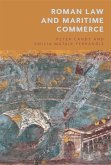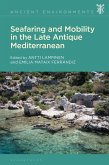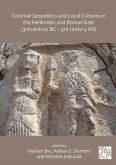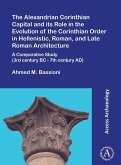Roman Amphora Contents: Reflecting on the Maritime Trade of Foodstuffs in Antiquity gathers together the results of the RACIIC International Congress (Roman Amphora Contents International Interactive Conference, Cadiz, 2015), dedicated to the distinguished Spanish amphorologist Miguel Beltran Lloris. The aim is to reflect on the current state of knowledge about the palaeocontents of Roman amphorae. With over 30 specialists from different countries, the text examines four elements diachronically throughout the Roman period up to the 7th century, with some insights on pre-Roman times: 1) the intimate relationships between amphorae and their contents, from an interdisciplinary perspective (from tituli picti to the evidence from underwater sites, including the problems of reuse); 2) the contribution and current state of knowledge concerning archaeometric approaches (especially organic residue analysis); 3) the evidence at regional / provincial level (from Lusitania to Egypt); and 4) recent case studies, from Corinth, Pompeii and Arles to the Fretum Gaditanum, which allow us to illustrate the different and combined study methods, necessarily interdisciplinary (archaeological, archaeobotanical, archaeozoological, epigraphic, palynological or biomolecular), in order to advance in this transcendental theme and its significance for the economic history and maritime traffic of the Ancient World.
Dieser Download kann aus rechtlichen Gründen nur mit Rechnungsadresse in A, B, BG, CY, CZ, D, DK, EW, E, FIN, F, GR, HR, H, IRL, I, LT, L, LR, M, NL, PL, P, R, S, SLO, SK ausgeliefert werden.

